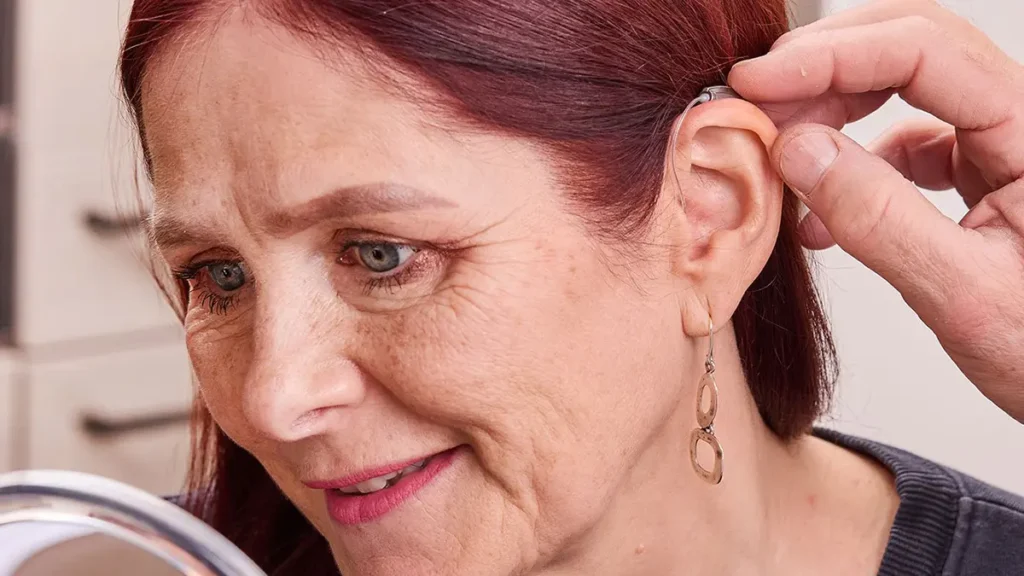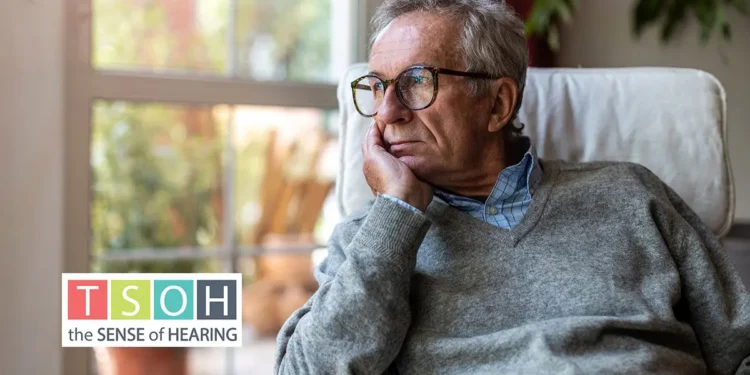Do you have trouble understanding what people are saying especially in noisy places, find yourself constantly asking people to repeat themselves, or have difficulty hearing women’s and children’s voices?
Find yourself experiencing ringing in your ears, struggle to hear on the phone, turn the TV volume up to a level other people find uncomfortable, or avoid social situations that you used to love going to? And finally, are people even teasing you about going deaf?
Hearing Loss Can Happen To You
Most people think that hearing loss is something that happens to other people. But did you know that in the UK, more than 40% of people over 50 years old have hearing loss? This rises to more than 70% of people over the age of 70.
Unfortunately hearing loss is common in older people and is often caused by aging, disease, and genetic variations. Age-related hearing loss tends to affect both ears. It often starts with problems hearing what other people say, especially in noisy environments and difficulties listening to the TV or radio. And in many cases, the symptoms are so minimal and gradual that it may be difficult to notice much of a significant change. That’s why if you are noticing any difference in your hearing, it’s important to get a hearing test.
Prevention Is Key
Having a regular hearing test is advisable. It will help to diagnose any pertinent medical conditions and identify potential problems. Remember, hearing loss is not a reversible condition.
At a hearing test, which can take between 60-90 minutes, you will have an initial consultation, an ear inspection (inside and out) using an otoscope, followed by a pure-tone audiometry test. The audiologist will then go through your results and talk to you about the best way to manage your hearing loss, including which products will be best for you based on your lifestyle and budget.
Hearing aids are the obvious solution for an improved quality of life. That’s why it’s worrying that approximately 20% of adults (1.) who have hearing aids currently do not use them. Whilst 30% use them some of the time and the remaining 50% most of the time. However, some recent studies might persuade you of the importance of wearing them.
Reduce The Rate Of Cognitive Decline
Dr Piers Dawes, a neuropsychologist from The University of Manchester, conducted extensive studies into the link between dementia and hearing impairment. He found that hearing impairment is associated with cognitive decline and brain atrophy. Brain scans showed that hearing loss may contribute to a faster rate of atrophy in the brain, an increased likelihood of developing Type 2 diabetes and disruptions to speech.
The results also showed that people who use hearing aids are less likely to develop dementia. That’s because hearing aid use is associated with fewer memory problems and thinking problems, independent of dementia. Plus, tracking hearing aid use over time showed that it was associated with less decline in memory skills.

Hear Better To Live Better
The solution is to make an appointment with a reputable, professional and qualified audiologist. They will take plenty of time to assess your hearing and discuss the options available. In addition, they have access to all leading brands of advanced hearing aids and accessories and can supply and fit them for you, as well as provide ongoing advice and support.
Stay Connected
David Peel, a highly experienced independent audiologist based at the newly opened The Sense of Hearing in Banbury’s White Lion Walk said. “There are many more reasons to wear a hearing aid than just to hear better. Hearing loss affects your emotional, physical and mental health and can increase isolation as you withdraw from things that you like to do. But thanks to discreet and effective hearing aids, you can live life to the full, and feel more independent, confident, outgoing and connected with the world around you. Plus, you can reduce your risk of developing dementia!”
If you think you have any symptoms of hearing loss, don’t wait. The quicker you’re diagnosed, the sooner you can take steps to protect your hearing. Book your hearing test with The Sense of Hearing today.
(1.) Professor Kevin Munro and Professor Harvey Dillon – The University of Manchester







